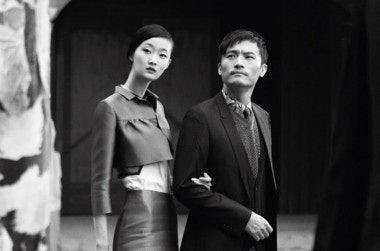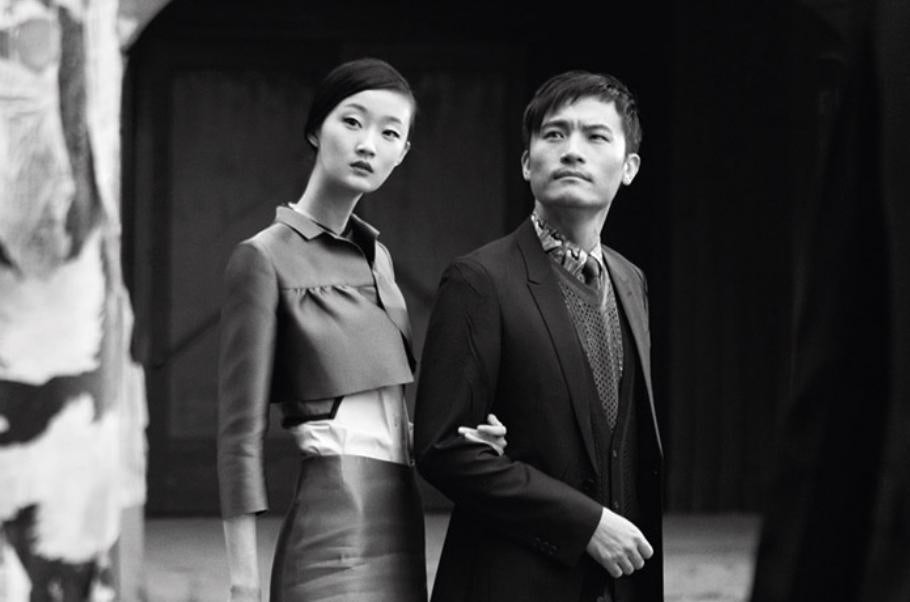Cartier’s "Destinée” Reeled In Over 2 Million Views#

Having firmly established itself as a critical luxury market, China has become a fierce battleground for brands looking to set themselves apart and, more importantly, get a better return on their ample investment. Perhaps nowhere is this more apparent than in the digital space, where brands have spent handsomely to reach and influence China's young, digitally native, and "luxury-obsessed" consumer. With Chinese consumers increasingly turning to mobile devices for news and e-commerce, getting product information and brand updates in bite-sized pieces via Weibo and WeChat, "mini-movies" (微电影) -- trailer-length, cinematic segments often featuring celebrity faces -- have moved to the forefront as an effective and timely marketing tool. In recent months, mini-movies have been employed by luxury houses such as Louis Vuitton, Bulgari, Swarovski, and Cartier as well as mass-market brands like Pepsi and Lay's.
Though we've seen a spate of mini-movies appear on Weibo and WeChat over the past year, the format itself is not new. Three years ago, Prada commissioned Chinese artist Yang Fudong for its "First Spring" mini-movie, and in 2011 Cadillac experimented with the mini-movie format by casting Hong Kong actress and singer Karen Mok in its "Route 66" campaign. In 2011 and 2012, Johnnie Walker worked with Chinese filmmakers, including Jia Zhangke, on two editions of its "Yulu" campaign then tapped Zoe Cassavetes last year for its China-focused "True Rarity" spot.
The recent explosion in mini-movies, however, comes back to the fact that they're in the right place at the right time, with the attention span of Chinese netizens plummeting as their time on social media platforms has skyrocketed. The success of recent high-profile campaigns bears this out. As Brandchannel noted last week, Pepsi's recent mini-movie "Bring Happiness Home" -- featuring actors Zhou Xun, Louis Koo, Show Luo, Zhang Guo Li and Angela Chang -- racked up more than 100 million views in its first week of release. Similarly, in anticipation of its large-scale lighted snake launch at Beijing’s Shin Kong Place, Bulgari created a short commemorative video featuring the newest face of Bulgari, Rachel Weisz, which has been viewed 352,000 times on Youku. This past summer, Louis Vuitton went so far as to produce a series of one-minute vignettes filmed by The Selby in the week leading up to the grand opening of the brand's first mainland China Maison in Shanghai. What do all of these mini-movies share in common? They're incredibly short, easy to share via Chinese social networks, and include famous faces. (Or locales, in the case of the Louis Vuitton Express series.)

Cartier, whose mini-movie "L'Odyssée de Cartier" boasted 16.5 million views last year, recently released the seven-minute film "Destinée,” featuring superstar actress Michelle Chen. Climaxing in a scene clearly aimed at the China market, in which Chen's French beau proposes in Mandarin, Destinée has been viewed nearly 2.4 million times on Cartier's official Youku channel. Compare that to a little over 152,000 views on Youtube.
Observing the growing popularity of these branded mini-films, industry experts have mixed feelings about the format's prospects as a sustainable marketing strategy. As Ric DiIanni, president of Shanghai-based House Films, told Brandchannel, in his view mini-movies are “going to explode," as online branded content is "the only thing that makes sense in advertising" in China. Owing to high production and promotion costs -- Swarovski's highly elaborate "Sparkling Secrets" campaign, which spanned a half-dozen social networks, is a prime example -- others think brands will prefer to rely more on product placement in high-profile films than keep creating mini-movies. Sirena Liu, founder and president of Filmworks China, told Brandchannel that she expects brands to "soon realize that it makes more sense to do placement in a high-profile film" than invest in mini-movies.
However, product placement too has its detractors. As Jing Daily wrote in November 2010, rampant product placement in the “Go Lala Go!” (杜拉拉升职记), a”Devil Wears Prada”-esque romantic comedy about an ambitious office worker, alienated much of its audience, and director Feng Xiaogang faced a backlash after including several conspicuous brands in his film "Aftershock." Since then, more often we've seen product placements go the other way around, as Chinese brands have invested heavily to get their products into films like "Transformers 2" and television shows like "The Big Bang Theory."
